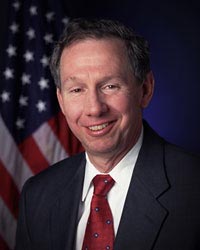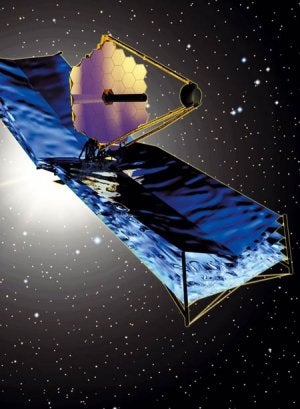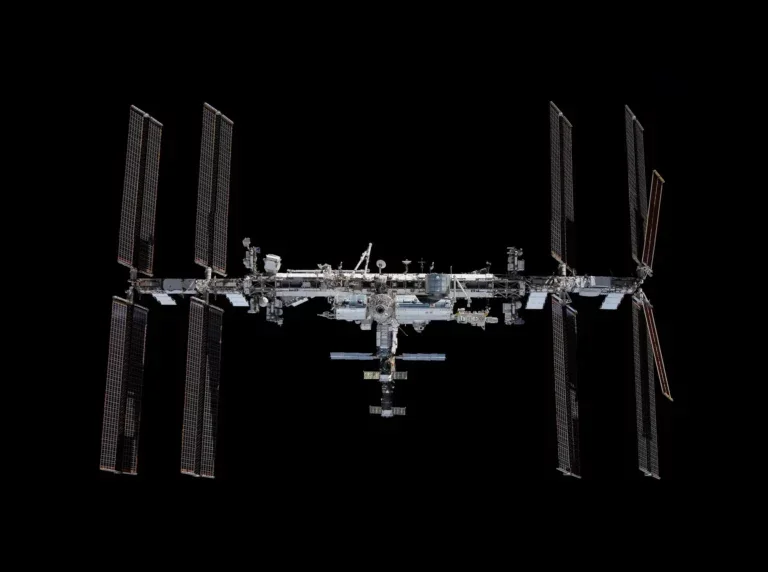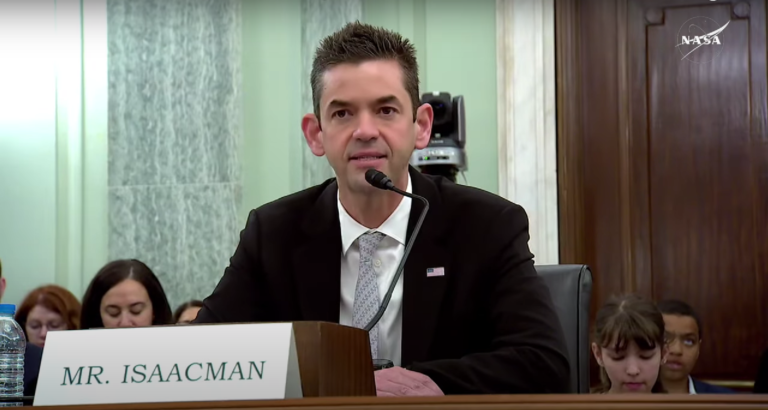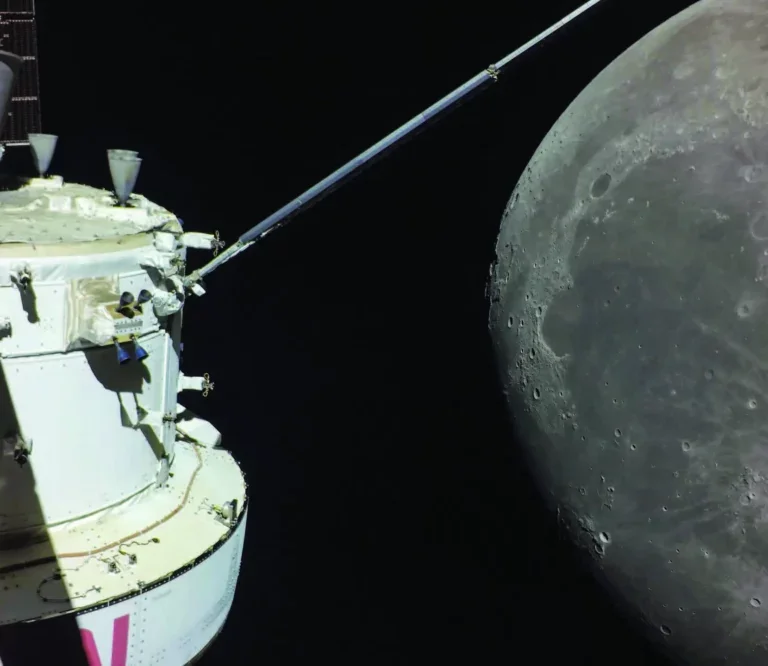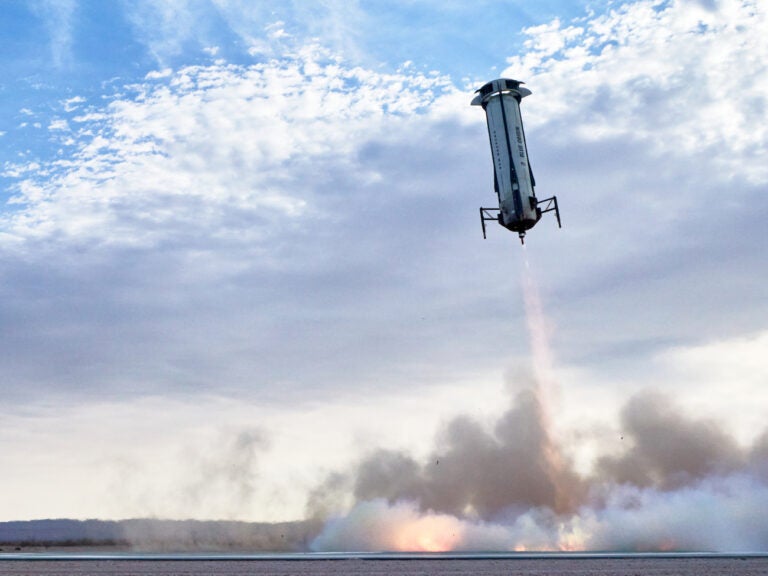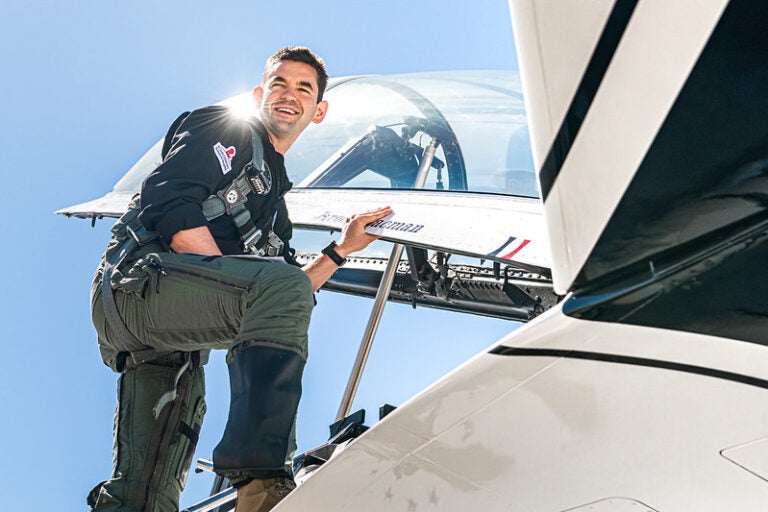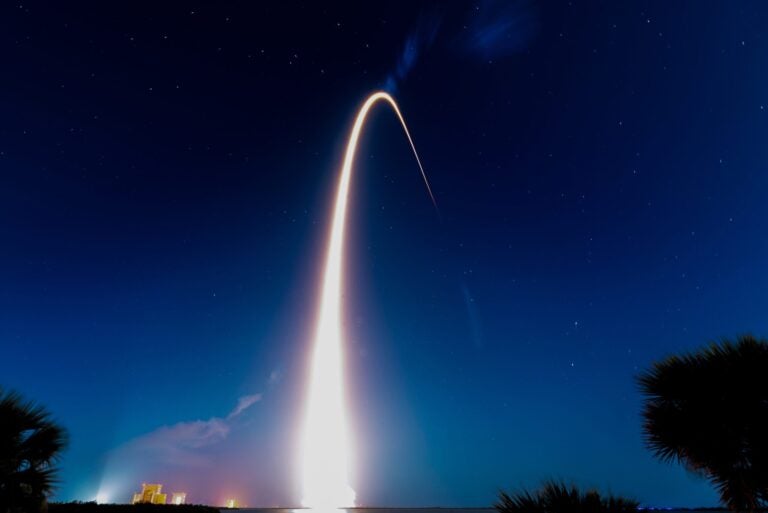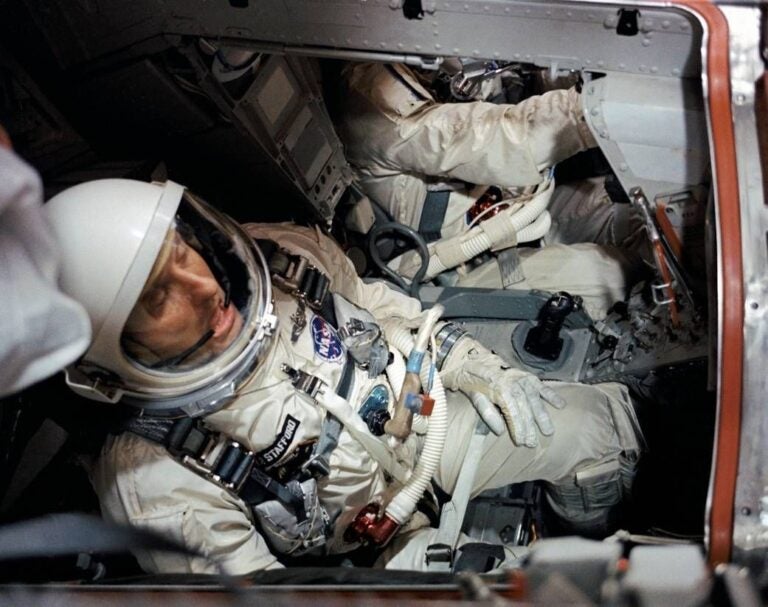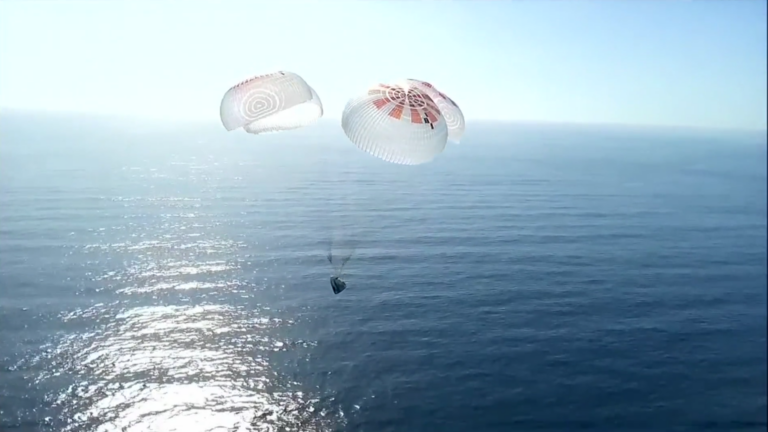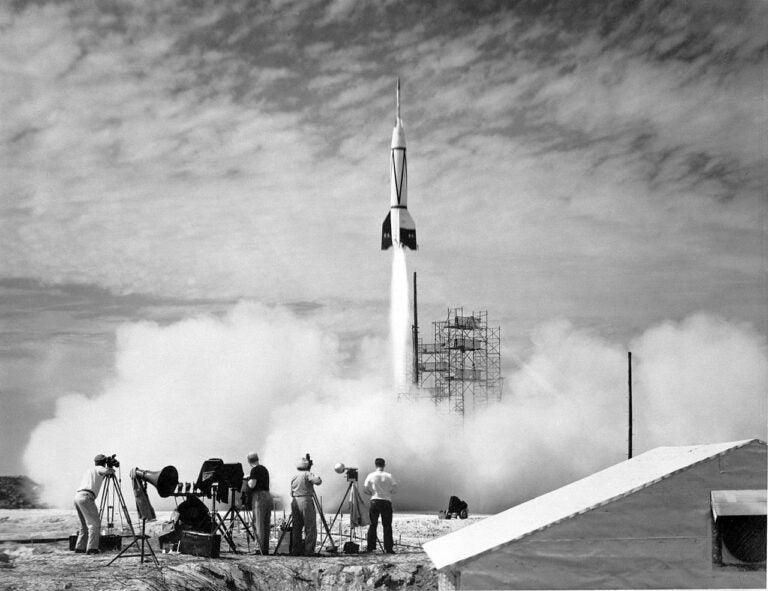NASA chief Michael Griffin told astronomers Tuesday that money for their science programs will be tighter than in the past decade as the agency ramps up its ambitious goals for human exploration.
“The growth of science within NASA has been in the 5- to 7-percent range, annualized over the last decade or so, and that’s been great,” Griffin told thousands of astronomers gathered in Washington for this week’s American Astronomical Society meeting. “We’re in a budget environment right now when that level of growth can’t be maintained, although science at NASA will still have growth. But we are all hurting.”
He said the astronomical community should set its research priorities accordingly.
Critics of the Bush administration’s plans for human missions to the Moon and Mars argue they put too great an emphasis on costly human exploration at the expense of cheaper robotic missions. Ackowledging these concerns, Griffin said, “It is not our desire to sacrifice present-day scientific efforts for the sake of future benefits to be derived from exploration.”
Technological improvements, the development of commercial space interests, and international cooperation may reduce costs and increase NASA’s ability to support science programs, he explained.
Griffin, an aerospace engineer, noted his lifelong interest in astronomy and space began at the age of 5, when his mother gave him a copy of Sy Barlowe’s A Child’s Book of Stars, and said he would always be proud of having contributed in a small way to development of the Hubble Space Telescope in the 1980s. “In fact, it is my deep appreciation of the importance of Hubble … to science and society that prompted my decision that NASA will, if at all possible, use one of the remaining flights of the space shuttle for Hubble servicing.”
A chunk of foam insulation breached the wing of space shuttle Columbia, which led to the loss of vehicle and crew February 1, 2003. Despite fixes, problems with falling foam appeared again during last year’s flight of Discovery. The next space-shuttle flight is tentatively scheduled for May.
Taking questions submitted in advance by astronomers, Griffin said that a plan to service Hubble robotically has been scrapped except for a mission that will bring the telescope out of orbit. “It is either a shuttle mission to repair Hubble or it will not be repaired,” he said.
Asked about the $1.5-billion cost overrun associated with development of the James Webb Space Telescope (JWST), Griffin said he preferred to call it an “undercosting.” Independent reviews have shown that no mistakes were made in the design, he explained, but not enough money was budgeted to the project. NASA will delay the SIM Planetquest mission, originally scheduled for a 2011 launch, in order to provide the funds for JWST.
Taking on critics of the administration’s plans for human exploration, Griffin said: “I would argue strongly with those who assert that human space flight is inimical to science. It is my conviction that in the 21st century we will see human civilization spread out into the solar system, carrying with it the values we collectively cherish, including the value and practice of free and open inquiry, which is so essential to the scientific community.”

